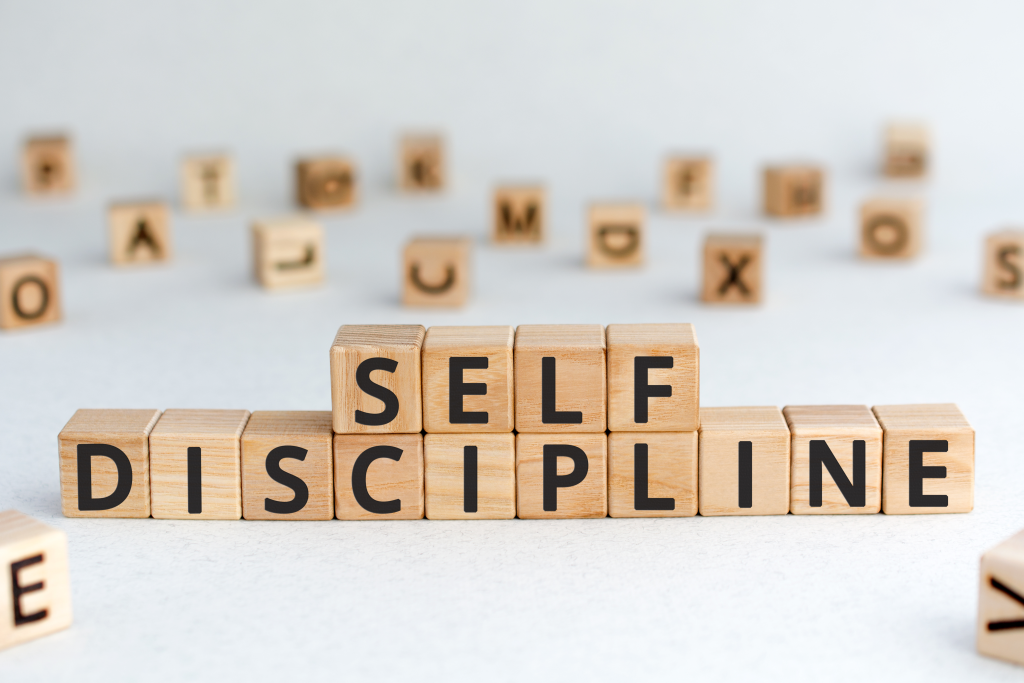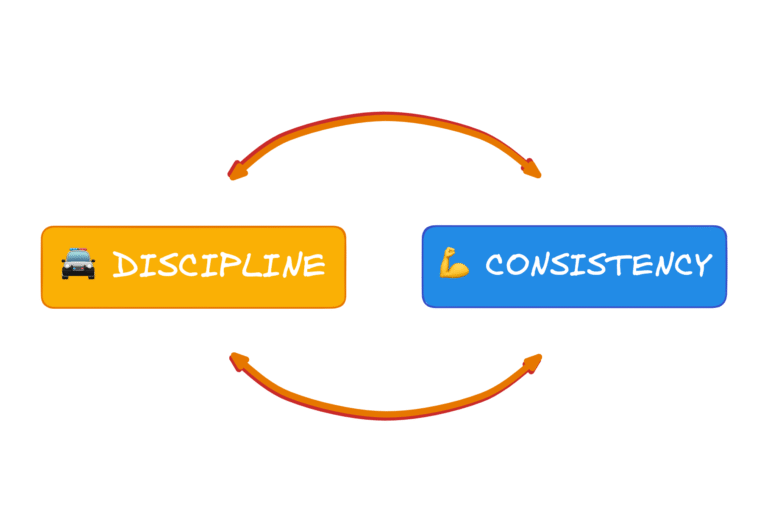Self-discipline is one of the most powerful traits a person can develop. It is the force that propels us to move forward in the face of obstacles and to maintain focus despite distractions.
From academic success to personal development, the importance of self-discipline can’t be overstated. In the context of our lives as Indians, it plays a critical role in helping us achieve individual goals, build better habits, and ultimately contribute to the success and growth of our society and country.
In this blog post, we will explore the power of self-discipline, its importance, and how it can be cultivated, both for personal growth and the collective development of our nation.
What is Self-Discipline?

Self-discipline can be defined as the ability to control one’s emotions, behavior, and actions in the face of external demands, to achieve a greater goal. It involves making choices that are aligned with our long-term objectives, even when short-term temptations or distractions arise. In essence, self-discipline is about choosing the hard right over the easy wrong.
In the Indian context, self-discipline is deeply ingrained in our culture. Whether it’s in ancient texts, spiritual practices, or the teachings of our leaders, discipline has always been regarded as a cornerstone of success. The ancient sages and philosophers of India emphasized the need for self-control in their pursuit of wisdom. From the yogis who practiced discipline in their bodies and minds to modern-day achievers who have set a global example, self-discipline has been the secret behind their success.
The Importance of Self-Discipline in Personal Growth
1. Achieving Success in Education
In India, education is highly valued, and academic success is often seen as the key to securing a good job and leading a prosperous life. Self-discipline is vital for students to stay focused on their studies, manage their time effectively, and avoid distractions. Without discipline, it’s easy to fall into the trap of procrastination and ineffective study habits.
Students who practice self-discipline are more likely to stick to their study schedules, complete their assignments on time, and perform well in exams. Whether it’s rising early to study, dedicating time to revision, or avoiding distractions like social media, the ability to focus on academic goals and work toward them consistently is at the heart of self-discipline.
Take inspiration from the lives of great Indian leaders like Dr. A.P.J. Abdul Kalam, who excelled in his academic and professional life due to his disciplined approach to work. His passion for learning and commitment to his goals are a testament to the power of self-discipline.
2. Building Healthy Habits
Self-discipline is the foundation of building good habits. Many of us struggle with maintaining a healthy lifestyle due to a lack of discipline. Whether it’s eating nutritious food, exercising regularly, or following a proper sleep schedule, self-discipline is what helps us stay committed to our health goals.
In India, where traditional practices like yoga, meditation, and healthy eating have long been part of our culture, the power of self-discipline has been passed down through generations. These practices require consistency and dedication—qualities that can only be cultivated through self-discipline.
Self-discipline allows us to stick to a fitness routine, choose healthy food over unhealthy options, and maintain mental clarity through practices like meditation. Over time, these disciplined habits build resilience and lead to a healthier, more balanced life.
READ MORE
Speech on Discipline: The Key to Success
Time Management for Fitness: How to Balance Work, Life, and Exercise
3. Career and Professional Success

Self-discipline plays an equally critical role in the professional world. To excel in your career, you need to be consistent, organized, and dedicated to your work. In a country like India, where competition is fierce in almost every field, professionals who maintain high standards and work ethics are the ones who rise to the top.
From entrepreneurs like Ratan Tata and Narayana Murthy, who built their empires with unwavering discipline and vision, to young professionals working in fast-paced environments, self-discipline is a common trait among successful individuals. It allows them to manage their time efficiently, focus on their goals, and push through difficult situations.
In the corporate world, deadlines, meetings, and decision-making can often be overwhelming. Self-discipline helps professionals avoid procrastination, stay focused on their work, and consistently deliver quality results. It also plays a key role in developing leadership qualities, such as taking responsibility, showing accountability, and mentoring others.
4. Financial Stability and Wealth Building
Financial discipline is another aspect of self-discipline that plays a crucial role in achieving long-term financial goals. Many individuals in India struggle with spending impulsively or failing to save for the future. However, self-discipline helps individuals manage their finances, save money, and invest wisely.
In a country like India, where saving and investing for retirement or unforeseen circumstances is essential, cultivating financial discipline is critical. Whether it’s budgeting, avoiding unnecessary debts, or investing in assets, self-discipline is what helps individuals stay on track with their financial plans. It also encourages living within one’s means, delaying gratification, and making informed decisions when it comes to money.
The ability to control spending habits and invest wisely can lead to financial freedom, security, and prosperity. With consistent efforts over time, financial discipline can help you achieve long-term wealth and stability.
How to Cultivate the Power of Self-Discipline

1. Set Clear Goals
The first step in building self-discipline is to have clear, achievable goals. Setting goals helps you stay focused and motivated, giving you a clear sense of direction. Without clear goals, it’s easy to lose track of your aspirations and fall into the trap of procrastination.
In India, where young people are constantly juggling multiple responsibilities, setting both short-term and long-term goals can help prioritize tasks and stay on track. Whether it’s academic excellence, career advancement, or personal well-being, clear goals will serve as your roadmap to success.
2. Create a Structured Routine
A well-structured routine is essential for building and maintaining self-discipline. A daily schedule helps you allocate time for work, study, exercise, and relaxation. By sticking to a set routine, you reduce the chances of wasting time and increase productivity.
Incorporating activities like yoga, exercise, and reading into your daily routine can help you maintain mental and physical discipline. The more structured your routine, the easier it becomes to maintain consistency, making self-discipline a part of your everyday life.
3. Avoid Temptations and Distractions
One of the biggest challenges to self-discipline is the temptation to engage in distractions. Whether it’s social media, mobile phones, or unnecessary meetings, distractions can derail your focus and disrupt your progress.
To practice self-discipline, it’s important to identify your personal distractions and take steps to limit them. For example, setting time limits on social media, creating a distraction-free workspace, or turning off notifications while working can help you stay focused on your tasks.
4. Hold Yourself Accountable
Self-discipline requires accountability. Keeping track of your progress and regularly evaluating whether you are on track with your goals is crucial. Holding yourself accountable for your actions allows you to measure your growth and make adjustments when necessary.
In addition to self-reflection, sharing your goals with family or friends who can help you stay accountable can make a big difference. Accountability partners can encourage you when you feel demotivated and celebrate your achievements when you succeed.
5. Practice Patience and Persistence
Building self-discipline doesn’t happen overnight. It takes time and consistent effort to develop this trait. The key is to remain patient with yourself and persistent in your efforts. Don’t expect instant results—success is built through consistent, disciplined actions over time.
In India, where patience and perseverance are often linked to our cultural values, embracing these qualities will help you stay on track with your goals. Whether it’s mastering a new skill, building a business, or improving your health, consistency is the key to success.
6. Learn from Failures
Failure is an inevitable part of life, but it should never discourage you from practicing self-discipline. In fact, it is through failure that we often learn the most. Every time you fall short of your goals, treat it as a learning opportunity and adjust your strategy accordingly.
In India, where perseverance is often celebrated, we can take inspiration from the struggles of historical figures like Mahatma Gandhi and Swami Vivekananda, who achieved greatness despite many obstacles. Their stories remind us that failure is just a stepping stone to success.
The Power of Self-Discipline: Conclusion
The power of self-discipline cannot be overstated. It is the foundation of personal growth, career success, and financial stability. In the Indian context, where the youth play a vital role in shaping the future of the nation, developing self-discipline is critical to ensuring both individual and national progress.
By setting clear goals, creating structured routines, avoiding distractions, holding ourselves accountable, and practicing patience, we can cultivate the power of self-discipline and achieve greatness. Remember, the most successful individuals are not those who never face difficulties, but those who remain disciplined and keep pushing forward despite them.
As we move forward in life, let us embrace the power of self-discipline and channel it into every aspect of our lives. The future of our personal success and the growth of India as a nation depend on it.






